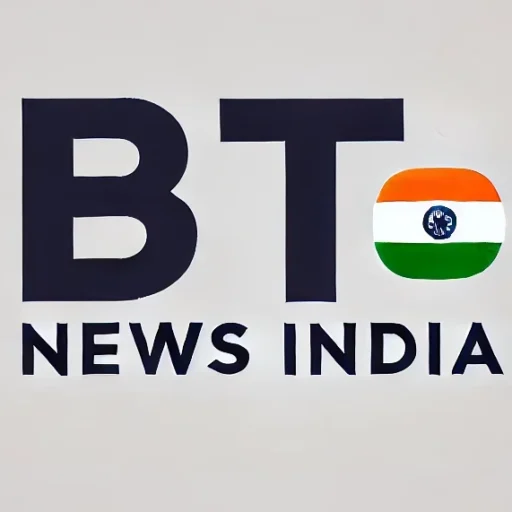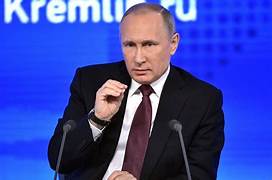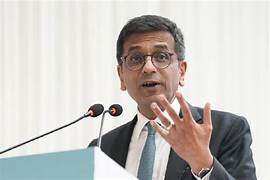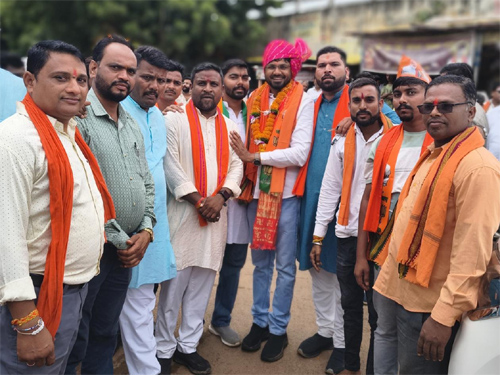Russian President Slams Trump’s Economic Pressure Tactics, Calls for Equal Dialogue with Global Powers
Published on: September 04, 2025
By: BTNI
In a fiery statement at a press conference following the Shanghai Cooperation Organisation (SCO) Summit in Tianjin, China, on September 3, 2025, Russian President Vladimir Putin issued a stern rebuke to the United States, particularly targeting US President Donald Trump’s recent tariff moves against India and China.
“You cannot talk to India or China like that,” Putin declared, emphasizing that attempts to strong-arm two of Asia’s economic giants through economic sanctions and tariffs are misguided and outdated. His remarks, made in the presence of Indian Prime Minister Narendra Modi and Chinese President Xi Jinping, underscore a growing resistance to Western economic coercion and signal a shift toward a multipolar world order.
A Direct Challenge to US Policy
Putin’s comments come in response to the Trump administration’s imposition of a 50% tariff on Indian goods, effective August 27, 2025, as a punitive measure for India’s continued purchase of Russian oil. The US has also maintained a trade war with China, using tariffs to pressure Beijing.
Putin criticized these tactics as reflective of a “colonial-era mindset,” asserting that nations like India, with its 1.5 billion population, and China, a global economic powerhouse, cannot be dictated to through threats of punishment. “Attempting to weaken their leadership, built through difficult histories, is a mistake,” he said, highlighting the resilience and sovereignty of both nations.
Speaking after a military parade in Beijing commemorating the 80th anniversary of World War II’s end, Putin argued that such economic pressures are not only ineffective but also destabilize global power balances. “When somebody tells you they are going to punish you, you have to think—how can the leadership of those big countries react?” he asked, noting that showing weakness could end political careers in nations with strong historical and domestic political instincts.
SCO Summit: A Show of Solidarity
The SCO Summit in Tianjin, attended by leaders from India, China, Russia, and other Central and South Asian nations, provided the backdrop for Putin’s remarks. A widely circulated image of Modi, Putin, and Xi sharing a jovial moment—holding hands and laughing—sent a powerful message of unity among the three powers.
This display of camaraderie was seen as a direct response to the US’s aggressive trade policies, particularly Trump’s claim that India’s oil purchases from Russia have cost Moscow “hundreds of billions of dollars.”
During bilateral talks, Modi and Putin discussed deepening cooperation in trade, energy, defense, and space, with Putin personally offering Modi a ride in his armored limousine for a 45-minute conversation en route to the summit venue. Modi described the India-Russia relationship as a “special and privileged strategic partnership,” vital for global stability, while Putin called Modi a “dear friend” and emphasized the nonpartisan nature of their ties. Similarly, Modi’s meeting with Xi marked a step toward resolving border tensions, with both leaders advocating for a partnership over rivalry.
Economic and Geopolitical Implications
Putin’s remarks highlight the growing economic clout of India and China, which together represent nearly half the world’s population and are among Russia’s biggest oil buyers. Despite US sanctions, India has continued to import Russian crude, citing the diversion of traditional oil supplies to Europe post the Russia-Ukraine conflict.
Also read- https://www.btnewsindia.com/tourism-minister-flags-off-special-train-with-650-pilgrims-for-shri-ram-lalla-darshan-under-ayodhya-dham-yojana/ https://www.btnewsindia.com/assembly-speaker-dr-raman-singh-to-attend-multiple-programs-during-rajnandgaon-visit-on-september-4/
Russia, in turn, has redirected its energy exports to Asia, ensuring revenue for its war economy. Putin dismissed accusations that India’s oil purchases fund the Ukraine conflict, calling the US tariffs “unjustified” and a pretext to address trade imbalances unrelated to Ukraine.
Analysts see the SCO Summit as a platform for Russia, China, and India to project an alternative to US-led global dominance. The US’s recent tariffs on Brazil and South Africa, alongside India, further illustrate a broader Western strategy to curb the influence of BRICS nations. However, Putin expressed optimism that “normal political dialogue” would eventually resume, suggesting that economic pressures would not deter the strategic alignment among SCO members.
Trump’s Response and India’s Defiance
Trump, reacting to the Tianjin summit, doubled down on his stance, claiming on September 1, 2025, that India’s reliance on Russian oil and military equipment leaves it vulnerable in an economic standoff with the US. He hinted at further “phase two” and “phase three” sanctions but maintained that India had offered to reduce tariffs, a claim New Delhi has not confirmed. Indian officials, however, have signaled their intent to continue buying Russian oil, with Russia offering its markets as an alternative for Indian goods facing US restrictions.
The optics of the SCO Summit, coupled with Putin’s vocal support, have emboldened India and China to resist US pressure. As Modi prepares to host Putin in New Delhi in December 2025, the deepening ties among these nations signal a robust challenge to Western economic dominance, with Putin’s words resonating as a rallying cry for a new global order where “everyone must be equal.”
This bold stance not only reinforces the strategic partnership among Russia, India, and China but also sets the stage for a redefined geopolitical landscape, where economic coercion faces stiff resistance from Asia’s rising powers.




